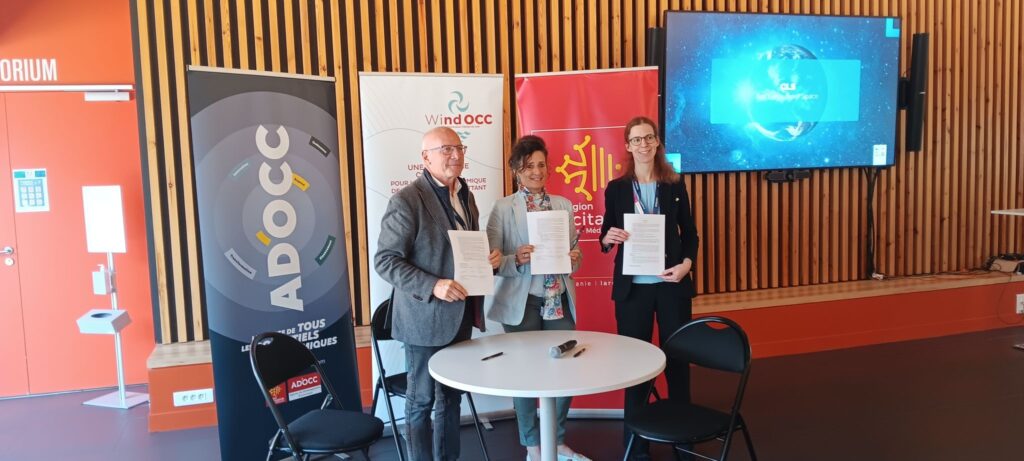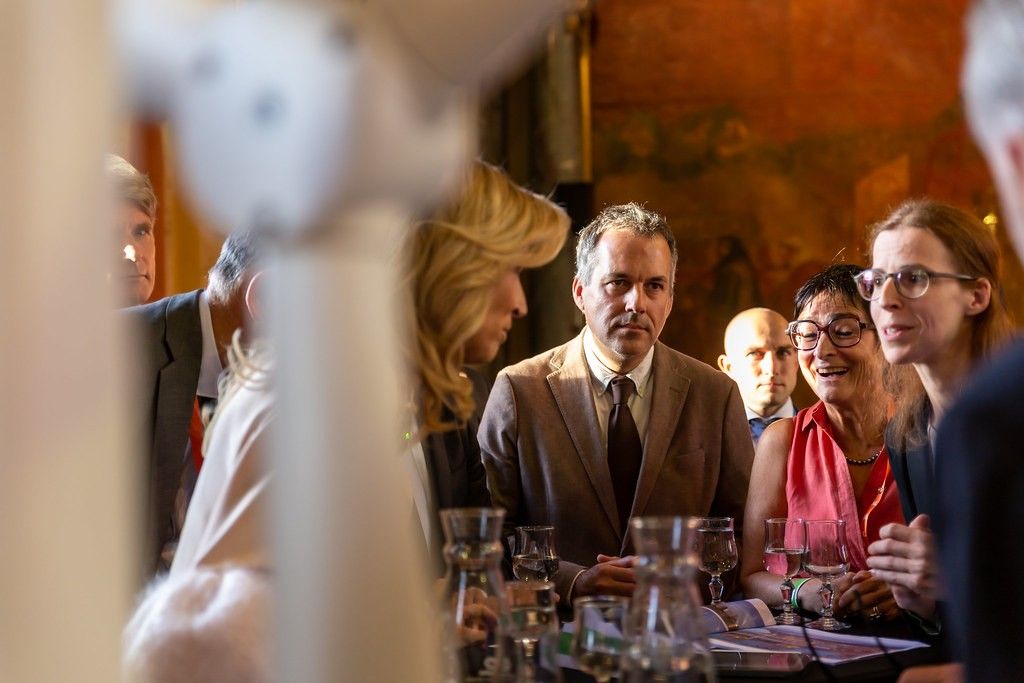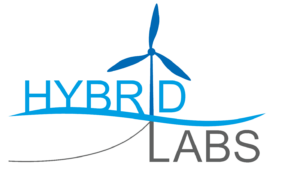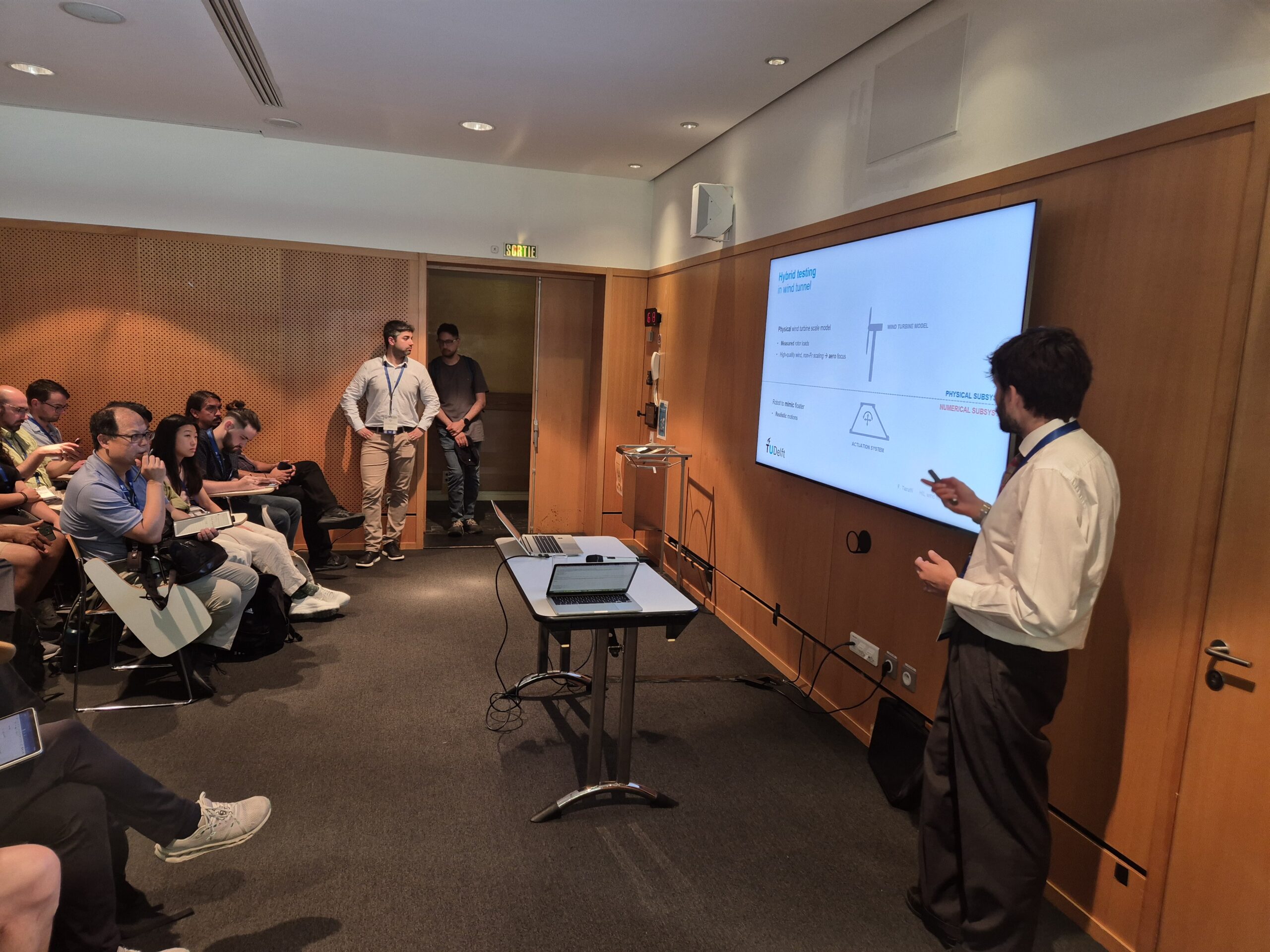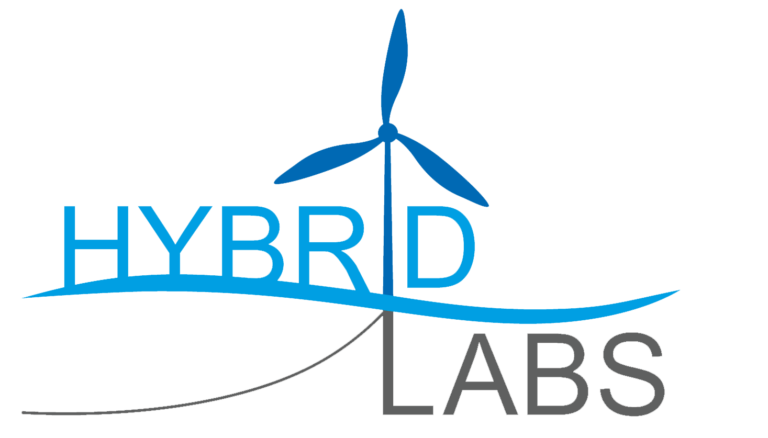One 1st and 2nd October 2025, the Dutch-French trade mission took place at Toulouse, France. Professor Axelle Viré, Head of the department and Full Professor of Floating Wind Energy at Delft University of Technology (TU Delft) and the Scientific Coordinator of Hybrid labs, showcased the exciting potential of floating offshore wind in advancing the energy transition.
The visit also marked the signing of a letter of intent between TU Delft, the University of Montpellier, and Wind’Occ, the regional cluster organization for wind energy in Occitania region of France, to strengthen research and educational collaboration in floating wind technology. The visit was based on the themes of the Franco-Dutch Innovation Pact with 130 businesses and research institutes.
Floating wind turbines sit on buoyant platforms anchored to the seabed, allowing them to generate power in much deeper waters than traditional fixed turbines — sometimes up to 1,000 meters deep. This makes it possible to tap into vast, previously unreachable offshore areas with stronger and more consistent winds, greatly increasing the potential for renewable energy generation.
Professor Viré had the honour of presenting the technology to their Majesties King Willem-Alexander and Queen Máxima. She spoke about how hybrid testing – combining physical experiments with numerical modelling – can accelerate the development and deployment of floating wind solutions. “𝘞𝘪𝘵𝘩 𝘧𝘭𝘰𝘢𝘵𝘪𝘯𝘨 𝘸𝘪𝘯𝘥 𝘦𝘯𝘦𝘳𝘨𝘺 𝘵𝘦𝘤𝘩𝘯𝘰𝘭𝘰𝘨𝘺 𝘵𝘦𝘴𝘵𝘦𝘥 𝘪𝘯 𝘩𝘺𝘣𝘳𝘪𝘥𝘭𝘢𝘣𝘴 𝘸𝘦 𝘤𝘢𝘯 𝘳𝘢𝘥𝘪𝘤𝘢𝘭𝘭𝘺 𝘴𝘤𝘢𝘭𝘦 𝘶𝘱 𝘢𝘯𝘥 𝘴𝘱𝘦𝘦𝘥 𝘶𝘱 𝘵𝘩𝘦 𝘶𝘴𝘦 𝘰𝘧 𝘰𝘧𝘧𝘴𝘩𝘰𝘳𝘦 𝘸𝘪𝘯𝘥 𝘦𝘯𝘦𝘳𝘨𝘺 𝘪𝘯 𝘵𝘩𝘦 𝘦𝘯𝘦𝘳𝘨𝘺 𝘵𝘳𝘢𝘯𝘴𝘪𝘵𝘪𝘰𝘯.” she said.
The delegation also visited Port-La-Nouvelle, where they spoke with floating wind farm developers and learned firsthand about the challenges and successes of deploying turbines at sea.
Reflecting on the mission, Axelle Viré shared her excitement for future collaboration: “I’m very much looking forward to strengthening the collaboration with our French partners in the field of floating wind energy and its role in accelerating the broader energy transition. It was an honour to participate in this economic mission and have the possibility to present our work.”
The mission was made possible with support from the Embassy of the Kingdom of the Netherlands in France, the Embassy of France in the Netherlands, the Netherlands Business Support Office, Holland Home of Wind Energy, and Wind’Occ.
